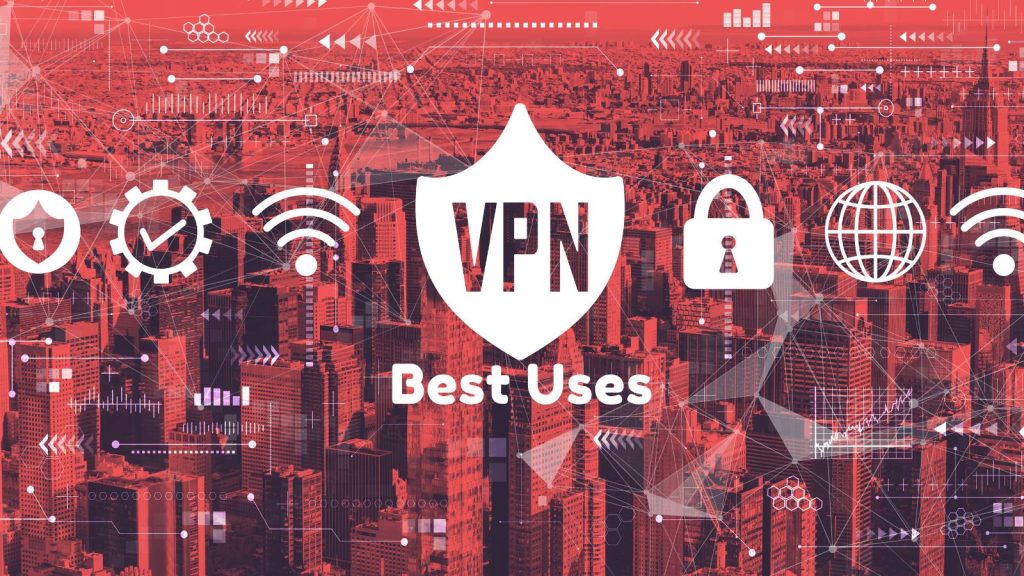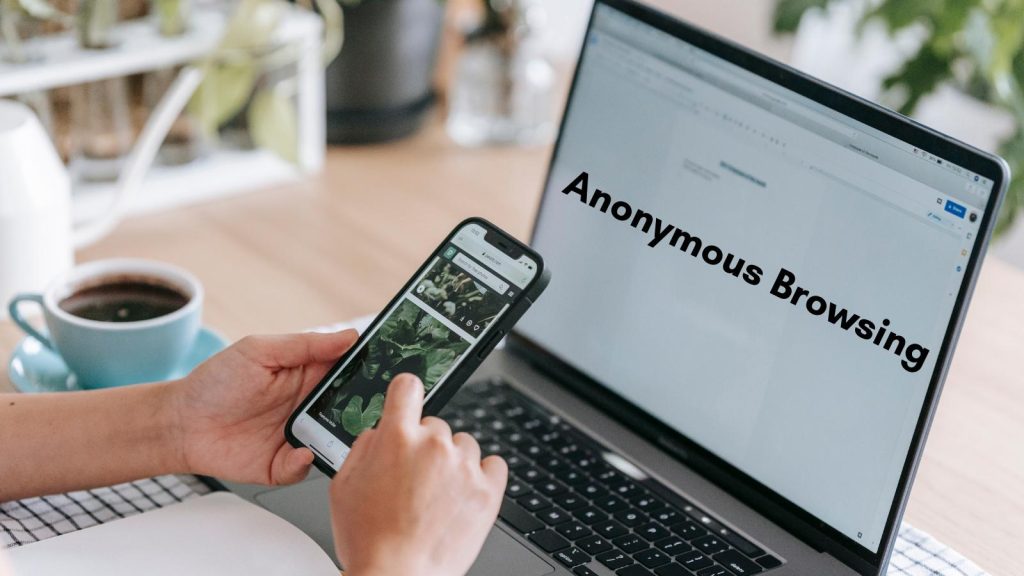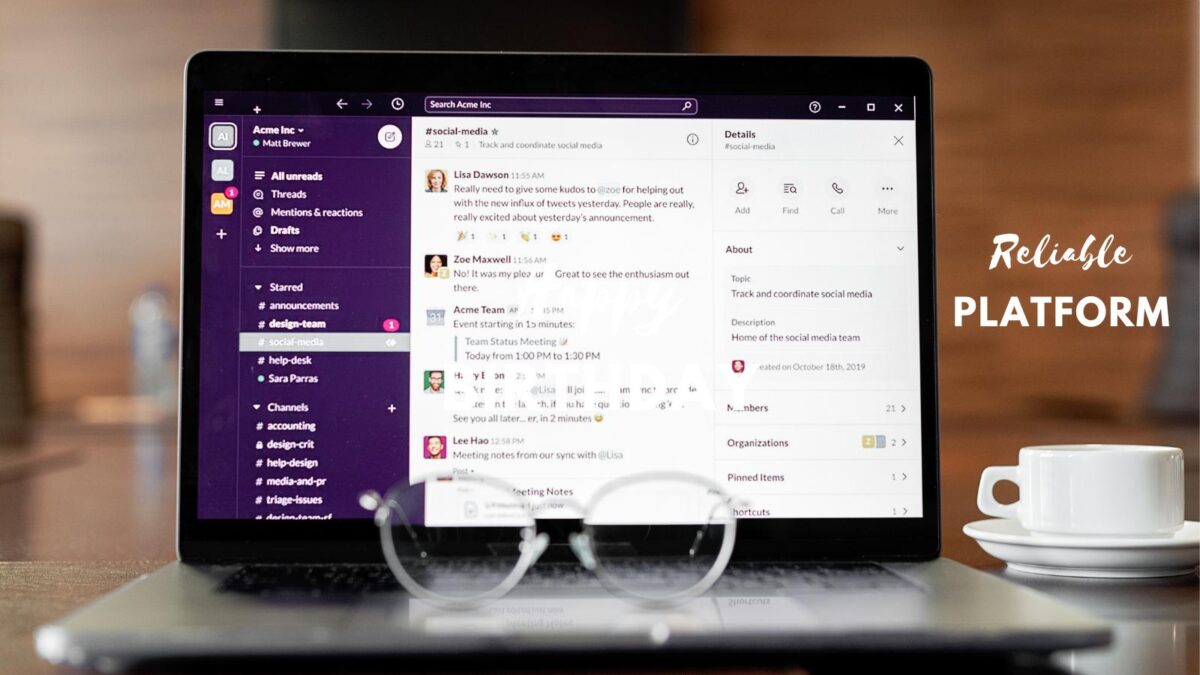Are you considering using a VPN but unsure if it’s worth it? In today’s digital age, where online privacy and security are paramount, Virtual Private Networks (VPNs) have become increasingly popular. But what are the best uses for VPNs, and more importantly, are they worth the investment?
Let’s delve into the benefits of VPNs, explore their various practical applications, and weigh the pros and cons to help you determine if using a VPN is the right choice for you and if you should download a VPN.
Table of Contents
Understanding VPNs
Virtual Private Networks, commonly known as VPNs, are powerful tools that provide a secure and encrypted connection when using the internet. They essentially create a private network from a public internet connection to ensure privacy and security for users.
Understanding the basics of VPNs and their types helps in making informed decisions about when and how to use them.
Best Uses For VPNS: Definition and Functionality
A VPN acts as a secure tunnel between your device and the internet, encrypting data that passes through it. This encryption protects your online activities from being monitored or intercepted by hackers, government entities, or internet service providers.
By masking your IP address and encrypting your internet traffic, VPNs offer anonymity and heightened security, especially when using public Wi-Fi networks.

Types of VPNs
- Remote Access VPN: This type of VPN allows individual users to connect to a private network remotely. It is commonly used by employees working from home or traveling, providing a secure way to access company resources and data.
- Site-to-Site VPN: Site-to-Site VPNs establish secure connections between different physical locations of a business or organization. It enables seamless communication and data exchange between networks located in separate geographical areas.
- Mobile VPN: Designed for mobile devices such as smartphones and tablets, mobile VPNs ensure secure connections for users on the go. They are vital for safeguarding sensitive information accessed through mobile devices on public networks.
- Intranet-based VPN: Intranet-based VPNs are utilized within an organization to facilitate secure communication and data transfer among internal systems. They help maintain confidentiality and integrity of company data while ensuring seamless connectivity.
- Extranet-based VPN: Extranet-based VPNs extend the functionality of intranet VPNs to external users or organizations. They enable secure collaboration and data sharing between businesses while maintaining strict access controls to protect sensitive information.
Understanding the diverse range of VPN types and their functionalities empowers users to select the most suitable option based on their specific needs and security requirements.
By understanding the benefits of VPN technology, individuals and organizations can enhance their online privacy, data security, and browsing experience in an increasingly digital world.
Benefits and Best Uses of VPNs
Using a Virtual Private Network (VPN) offers various benefits that can enhance your online experience and security.
Enhanced Security and Privacy
By using a VPN, your internet connection is encrypted, creating a secure tunnel that protects your data from potential hackers and cyber threats. This encryption helps safeguard your personal information, such as passwords, financial details, and browsing history, from being intercepted.
Moreover, VPNs mask your IP address, making it difficult for websites, advertisers, and even your Internet Service Provider (ISP) to track your online activities.
This added layer of privacy ensures that your online behavior remains confidential and enables you to browse the internet anonymously.
Access to Restricted Content
One of the key advantages of a VPN is the ability to bypass geo-restrictions and access content that may be restricted in your region. By connecting to servers in different locations, you can unlock websites, streaming services, and online platforms that might otherwise be unavailable to you.
Whether you want to access region-locked content or securely use public Wi-Fi networks while traveling, a VPN can provide you with the freedom to explore the internet without limitations.
Protection on Public Wi-Fi Networks
Public Wi-Fi networks are convenient but inherently insecure, making them prime targets for cyber attacks. When you connect to public Wi-Fi, your data is vulnerable to interception by malicious actors who may be eavesdropping on the network.
However, by using a VPN, you can encrypt your internet traffic and protect your sensitive information from potential threats lurking on public Wi-Fi hotspots. This added security measure ensures that you can browse the web, check emails, or conduct online transactions safely, even when using unsecured networks.
In summary, the benefits of using a VPN include enhanced security and privacy, access to restricted content, and protection on public Wi-Fi networks.
Integrating a VPN into your online routine can provide peace of mind and expand your online horizons by enabling secure and unrestricted internet access.
Common Best Uses For VPNS
In today’s digital age, Virtual Private Networks (VPNs) have become essential tools for a variety of online activities. Let’s explore some common use cases where VPNs prove to be invaluable:
Remote Work and Business Applications
With the rise of remote work, VPNs play a crucial role in ensuring secure connections for employees working from various locations.
VPNs create encrypted tunnels that protect sensitive business data from potential cyber threats, making them indispensable for businesses seeking to maintain confidentiality and data integrity.
Bypassing Geo-restrictions for Streaming Services
One of the most popular uses of VPNs is circumventing geo-blocks on streaming platforms. By connecting to a VPN server in a different country, users can access region-locked content and enjoy a broader range of movies, TV shows, and live events that may not be available in their current location.
VPNs unlock a world of entertainment possibilities at the click of a button.
Secure Online Banking and Transactions
Protecting financial information is paramount in today’s digital landscape. VPNs add an extra layer of security when conducting online banking activities or making transactions.
By encrypting data transmissions, VPNs shield sensitive financial details from prying eyes, ensuring a safe and secure browsing experience for users.
Anonymous Browsing and Sharing
For individuals looking to maintain anonymity while browsing the web or sharing files through torrents, VPNs offer a reliable solution. By masking IP addresses and encrypting internet traffic, VPNs enable users to browse the internet discreetly and securely.
This feature is particularly useful for those concerned about privacy and safeguarding their online activities.
In conclusion, VPNs serve a multitude of purposes beyond just privacy protection. From facilitating remote work to unlocking global content, VPNs are versatile tools that enhance online security and enhance user experiences across various digital platforms.

Factors to Consider Before Getting a VPN
When exploring the idea of getting a Virtual Private Network (VPN), several key factors should be looked into to ensure you make an informed decision that aligns with your needs and priorities.
Best Uses For VPNS: Level of Encryption and Security Protocols
One of the primary aspects to assess is the level of encryption and the security protocols offered by the VPN service.
Robust encryption standards such as AES-256-bit encryption provide a high level of security for your data transmissions, ensuring that your online activities remain private and protected from unauthorized access.
Logging Policies and Jurisdiction
Understanding a VPN provider’s logging policies and the jurisdiction in which they operate is crucial in safeguarding your privacy. Opt for VPN services that have a strict no-logs policy, meaning they do not track or store your online activities.
Additionally, choosing a VPN based in a privacy-friendly jurisdiction can help prevent any potential data retention laws that may compromise your anonymity.
Connection Speed and Server Locations
Another key consideration is the connection speed and the availability of server locations offered by the VPN provider. A reliable VPN should offer fast and stable connection speeds to ensure smooth browsing, streaming, and downloading experiences.
Furthermore, having a wide range of server locations globally can provide you with more options to bypass geo-blocks and access region-restricted content.
Compatibility with Devices and Platforms
Before committing to a VPN service, make sure it is compatible with the devices and platforms you intend to use it on. Whether you use Windows, macOS, iOS, Android, or other operating systems, a VPN that offers broad compatibility ensures you can secure all your devices under one subscription.
Additionally, consider whether the VPN supports simultaneous connections to accommodate multiple devices at once.
By carefully evaluating these factors before getting a VPN, you can make an informed decision that aligns with your security, privacy, and browsing needs.
Are VPNs Worth It?
In a world where online privacy and security are becoming increasingly important, the question of whether VPNs are worth investing in is a common one.
Let’s look into the cost vs. value for different user needs and explore real-world scenarios and user experiences to determine the true worth of VPN services.
Cost vs. Value for Different User Needs
When considering the value of VPNs, it’s essential to weigh the cost against the benefits they provide for different user needs. For individuals who frequently use public Wi-Fi networks, such as in cafes or airports, a VPN can offer a secure connection to protect sensitive data from potential cyber threats.
In this scenario, the cost of a VPN subscription is easily justified by the enhanced security it offers.
For avid streamers and content consumers, VPNs can unlock geo-restricted content libraries from around the world. By masking your IP address and rerouting your internet traffic through servers in different countries, VPNs enable access to a broader range of streaming services and websites.
The added value of accessing exclusive content and bypassing restrictions may outweigh the subscription cost for entertainment enthusiasts.
Business professionals who work remotely or handle confidential information can greatly benefit from the privacy and encryption features of VPNs. Maintaining a secure connection to company networks while traveling or working from home safeguards sensitive data and communications from potential breaches.
For businesses, the cost of implementing VPN solutions is often justified by the protection they offer against cyber threats and data leaks.
Real-world Scenarios and User Experiences with Best Uses For VPNS
To truly assess the worth of VPNs, let’s consider real-world scenarios and user experiences that highlight the practical benefits of using these services. Imagine a traveler exploring foreign countries and needing to access online banking or corporate accounts securely.
A VPN can encrypt their internet connection, ensuring that sensitive login credentials and financial information remain protected from hackers or surveillance.
In another scenario, a student studying abroad might encounter restrictions when trying to access academic resources or streaming platforms from their home country.
By using a VPN to mask their location and appear as if they are browsing from their home region, the student can overcome geo-blocks and access essential study materials or entertainment content without limitations.
User experiences with VPNs often emphasize the peace of mind and freedom they offer in an increasingly interconnected digital landscape. Whether it’s browsing the web anonymously, evading censorship, or preventing tracking by advertisers, VPN users appreciate the added layer of security and privacy that these services provide.
The value of safeguarding personal data and online activities from prying eyes can outweigh the relatively low cost of investing in a reputable VPN service.
How To Download A VPN
To download a VPN, start by visiting the official website of the VPN provider you’ve chosen. Look for the “Download” or “Get Started” button on the homepage. Click on it to begin the download process.
Follow the on-screen instructions to install the VPN software on your device. Once the installation is complete, launch the VPN application and sign in using your account credentials. S
elect a server location from the list provided and click on the “Connect” button to establish a secure connection. You are now ready to browse the internet anonymously and securely with your VPN activated.
Conclusion: Best Uses For VPNS
Virtual Private Networks (VPNs) have become indispensable tools in today’s digital age. Whether it’s for protecting your online privacy, accessing geo-restricted content, or securing your data on public Wi-Fi networks, the benefits of using a VPN are clear.
But are they worth it? The answer ultimately depends on your individual needs and priorities.
Benefits and Best Uses of VPNs
- Privacy and Security: VPNs encrypt your internet traffic, keeping your online activities private and secure from prying eyes.
- Access to Restricted Content: With a VPN, you can bypass geo-restrictions and access content that may be blocked in your region.
- Secure Remote Work: VPNs provide a secure way to access company resources and work remotely without compromising sensitive data.
- Protection on Public Wi-Fi: Using a VPN on public Wi-Fi networks adds an extra layer of security to prevent cyber attacks and data theft.
Considerations Before Using a VPN
- Cost: While there are free VPN options available, premium VPN services typically offer better security and performance but come at a cost.
- Speed: Some VPNs may slow down your internet connection due to encryption and routing processes.
- Legal Implications: It’s important to understand the laws regarding VPN usage in your country to avoid any legal issues.
- Trustworthiness: Research and choose a reputable VPN provider to ensure your data is not compromised.
Final Thoughts On Best Uses For VPNS
In conclusion, VPNs can be valuable tools for enhancing your online experience and protecting your digital presence. Whether you’re a frequent traveler, remote worker, online shopper, or simply concerned about your privacy, investing in a reliable VPN service can offer peace of mind and added security in an increasingly interconnected world.
So, are VPNs worth it? The decision is yours to make based on your specific needs and priorities. Do you use a VPN at home or when you travel? I’d love to hear your experiences with them in the comments below.
- Best Small Business Ideas From Home To Inspire You To Thrive - July 5, 2025
- How to Find Your Active X Twitter Followers Quickly & Easily - July 2, 2025
- Why Are Businesses Prioritizing PPC Agencies in 2025? - July 1, 2025



